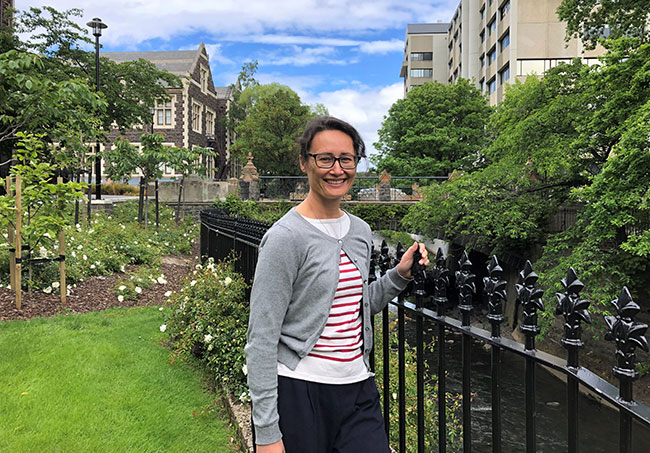Tuesday 13 November 2018 2:04pm

Dr Mele Taumoepeau of the University of Otago’s Department of Psychology was one of this year’s Marsden Funding recipients, and says the funding will allow her to develop ideas and contribute to advancing theories of social development in children and their application to interdependent cultures.
University of Otago researchers are celebrating the most successful Marsden Fund round to date, securing $28.5 million for 41 world-class research projects. Of this, $11 million across 14 projects has been granted to researchers in the Science Division, the highest number ever.
“These grants represent a continuation of research-led excellence that is our shared ambition, both for the University and for the Division,” says Pro-Vice-Chancellor (Sciences) Professor Richard Barker.
Funding across a broad range of topics ranging from ice sheets to quantum entanglement, and from whale fossils to influences on courtroom jurors, celebrates the variety of research undertaken across the University’s science departments.
Professor Barker says this breadth of research emphasises the level and depth of excellence existing in a broad range of sciences, with several departments receiving more than one grant.
Professor Gerry Closs, Head of the Department of Zoology in which Associate Professor Bruce Robertson and Professor Jon Waters are recipients, says he looks forward to the exciting discoveries made through the Marsden research as “we never know where it may lead.”
Professor Waters research will seek to unravel the biological changes following the massive 2016 uplift along the Kaikoura coast, providing the world's first large-scale, real-time test of the ‘Founder Takes All’ hypothesis, where ‘getting in first’ is everything.
“This is hugely exciting for our team as we are passionate about both geology and biology, and find it particularly exciting when we combine our efforts, working at the boundaries of these fields,” Professor Waters says. “New Zealand is the perfect place to work on these issues.”
The goal of Associate Professor Robertson’s research will be improving management options for conservation of endangered birds through resolving the genomic architecture of hatching failure in species including Kākāpō.
“New Zealand is the perfect place to work on these issues.” Professor Jon Waters (Department of Zoology).
Two Fast-Start grants were also awarded to early career researchers Dr Boyang Ding (Department of Physics) for his work with Surface Plasmon Lasers, and Dr Fabien Montiel (Department of Maths and Statistics) who is advancing modelling capability of ocean wave interactions with sea ice for improved forecasting and impact for the climate system.
"Receiving this Marsden Fast-Start is my biggest achievement as an academic so far,” Dr Montiel says. “It will allow me to initiate new collaborations with international leaders in my field to tackle key open questions related to the impact of ocean waves on sea ice dynamics in polar oceans.”
“I am grateful for the support and guidance of my family, friends and colleagues, who have had a key role in my success."
The Marsden Fund grants are highly contestable as applications come from the country’s eight universities, seven Crown Research Institutes and about 20 other separate private and public-sector organisations.
Having previously served on the selection panel, Professor Barker knows how difficult it is to get funding.
“It is extremely competitive and many of this year’s successful applicants have experienced disappointment in the past, so they can attest to the importance of persistence.”
The Pro-Vice-Chancellor also acknowledges continuing success lies with the support provided by Research and Enterprise, and particularly the Division’s Research Advisers Kate Berard and Melanie Remy who work incredibly hard on behalf of researchers.
